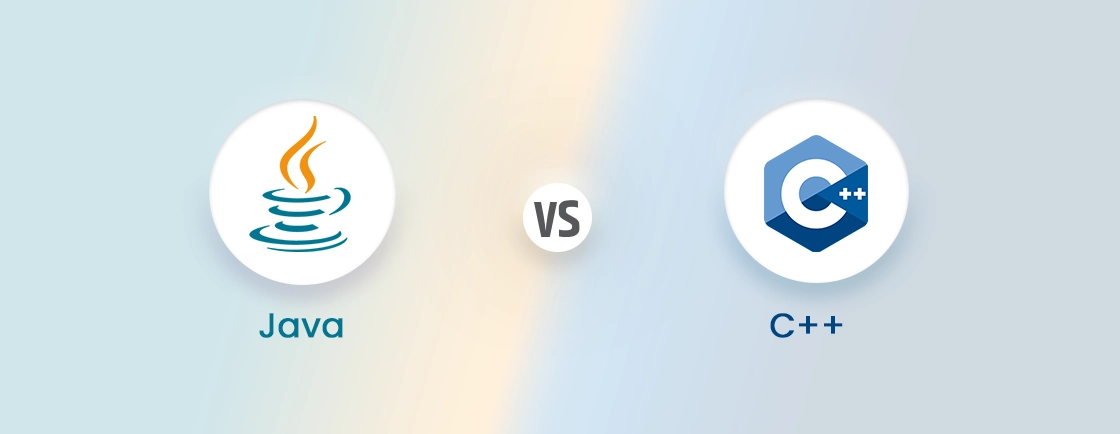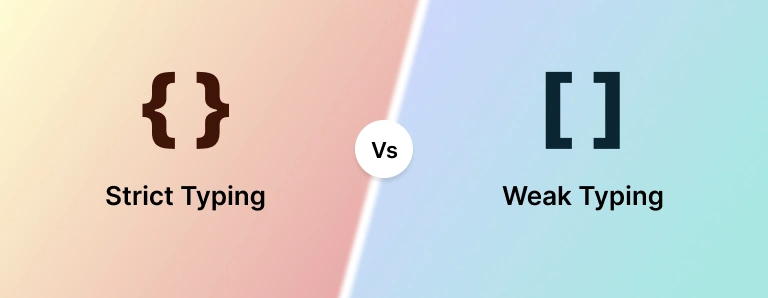Table of Contents
For anyone trying to create a new website, there are two basic options available. First, you can go for the online website builders, of which there are many. Or simply choose WordPress and create the website with relative ease. Mind you, when I say WordPress in this blog, I’m talking about WordPress.org, not WordPress.com.
Website builders and WordPress bring distinctive tools, features, and philosophies to the table, catering to a diverse range of needs and skill sets. Although both aim to create high-quality websites, the approach can be vastly different. And web development experts use both options depending on what a client requires. But how do they differ?
Where exactly do website builders vs WordPress stand? In this blog, I’ll guide through an informative comparison between the website builders and WordPress on the basis of a bunch of different factors. But let’s begin by seeing what website builders are.
What are Website Builders?
A website builder lets you create websites without any manual code editing. It offers a user-friendly interface, pre-designed templates, and drag-and-drop features. That makes it accessible to non-technical users, so they can build their websites with relative ease.
Popular website builders like Wix, Weebly, Squarespace, and WordPress.com also offer hosting. So you don’t have to look for separate hosting providers for your website. That makes the entire website creation process simpler. These platforms also offer a variety of customizable options, SEO tools, and e-commerce features.
Almost every website builder (including WordPress.com) offers free plans with basic features. But I suggest you go for the paid plans for greater flexibility and control over the design and functionality. However, if flexibility and customization is what you are looking for, WordPress is the best CMS and it will be more suitable.
How do Website Builders Work?
Let’s say you have decided to go with website builders. Then how does the process go? How do these platforms work? Well, different platforms have different workings. But let me give you a gist of the workings.
- Choose Your Builder: Explore different platforms like Wix, Squarespace, or Weebly. You need to choose the best website builder by comparing features, pricing, and ease of use.
- Sign Up and Select a Template: Create an account and browse ready-made templates catering to various niches. Choose one that aligns with your website’s purpose and aesthetic.
- Customize the Template: Most builders offer drag-and-drop interfaces. Drag elements like text boxes, images, and buttons onto the template to build your desired layout.
- Add Content and Functionality: Fill in text sections, upload images and videos, and use built-in tools like contact forms or galleries to enhance your website’s functionality.
- Optimize for Mobile: Ensure your website looks great and functions smoothly on all devices, especially smartphones. Many builders offer mobile-responsive options.
- Publish and Connect Your Domain: Finally, hit the publish button! Most builders offer free domain names for a limited time, or you can purchase a custom one.
- Enhance and Maintain: Your website isn’t set in stone. Explore additional features, install extensions (if your builder allows), and regularly update content and security settings.
Remember, every builder has slightly different interfaces and features. So this process won’t be the same with all of them.
But what kind of pros and cons do website builders entail? Let’s find out.
What are the Pros and Cons of Website Builders?
Website builders offer a tempting path to online presence, but are they the perfect fit for everyone? Let’s dive into the advantages and drawbacks to help you make an informed decision.
Pros
- Ease of Use: Drag-and-drop interfaces require minimal technical knowledge, making website creation accessible even for beginners.
- Cost-Effective: Many builders offer free or affordable plans, perfect for hobby websites or small businesses.
- Pre-built Templates: Choose from a vast library of professionally designed templates, saving you time and design headaches.
- All-in-One Solutions: Website builders often include hosting, domain names, and basic functionalities like contact forms and galleries.
- Mobile Responsiveness: Most builders ensure your website displays well on all devices, crucial in today’s mobile-first world.
Cons
- Limited Customization: Templates can restrict layout and design flexibility, making it harder to achieve a truly unique brand identity.
- Scalability Limits: As your website grows, you might outgrow the builder’s capabilities, prompting migration to a more versatile platform.
- Vendor Lock-in: Moving your website away from a builder can be difficult, as content may not easily transfer to other platforms.
- Hidden Costs: Free plans offer limited features, while paid plans can add up as you need more functionality.
- SEO Limitations: Built-in SEO tools might be basic, making it harder to compete for organic search traffic.
The pros and cons might vary for different website builders. So browse through the options. And you may be able to evade these cons effectively by consulting with a web development agency.
If ease of use and affordability are paramount, a website builder might be perfect. But let’s say you want a highly-customized and scalable website. Then CMS platforms like WordPress might be a better choice.
Let’s see the comparison between website builders and WordPress in detail.
Website Builders vs WordPress: Comparison Table
| Feature | Website Builders | WordPress |
|---|---|---|
| Ease of Use | Beginner-friendly, drag-and-drop interface, minimal technical knowledge needed | Requires some learning curve, self-hosted installation, plugin and theme management needed |
| Flexibility | Limited customization options within templates, less control over code | Highly customizable themes and plugins, full control over website code |
| Design Potential | Professional pre-built templates, limited theme variety | Massive theme library, custom theme development possible |
| Technical Requirements | No coding needed, hosting and domain often included | Self-hosted, requires separate hosting and domain purchase, plugin and theme installation |
| Cost | Free plans with limited features, paid plans for more functionality | Free core software, themes and plugins can be free or paid, hosting costs vary |
| Scalability | Limited ability to handle complex websites or high traffic | Highly scalable, can handle large websites and complex functionality |
| SEO | Built-in SEO tools, but limited control | More control over SEO settings, requires additional plugins for advanced optimization |
| eCommerce | Some builders offer basic eCommerce features, limited product options and customization | Powerful eCommerce plugins like WooCommerce, highly customizable product pages and features |
| Backup and Security | Automatic backups provided by builder, limited security control | Manual backups recommended, plugin options for enhanced security |
| Support | Builder-specific support channels, online communities can be limited | Large community and developer resources, plugin-specific support forums |
What is the Difference Between Website Builders and WordPress?
Website builders and WordPress are both popular tools for creating websites. But they differ significantly in terms of functionality, flexibility, and the target audience they cater to. Here’s a breakdown of the key differences between website builders and WordPress:
Ease of Use
Most website builders boast user-friendly interfaces. They allow you to build your website by simply dragging and dropping elements like text, images, and buttons onto the page. No coding knowledge is required, making them ideal for beginners.
Here’s the Wix dashboard for example.

Website builders offer a variety of pre-designed templates that cater to different types of websites. That includes blogs, portfolios, and eCommerce stores. That saves you time and effort in designing your website from scratch. But customizability with website builders is limited.
WordPress is still user-friendly. But it has a steeper learning curve compared to website builders. You’ll need to be comfortable navigating the admin dashboard, installing plugins, and customizing themes (through child themes).

This CMS offers much more control over your website’s design and functionality. WordPress has thousands of plugins. So you can choose the best WordPress plugin to integrate outstanding features and functionalities.
Verdict: If ease of use is a top priority and you want a quick and straightforward solution, website builders may be more suitable.
Flexibility and Customization
Website builders offer pre-built templates that act as preset frameworks. But that limits your ability to deviate from their structure and design. It’s like trying to fit a square peg in a round hole. Although some builders offer theme variations, they rarely allow deep dives into code changes or layout alterations.
Some site builders offer basic plugins for adding features, but the selection pales in comparison to WordPress’s vast library. That restricts your website’s potential to grow and evolve to meet your changing needs.

With over 60,000 plugins at your disposal, the sky’s the limit. Add eCommerce functionality, integrate social media feeds, create booking systems, and much more. And WordPress is great for SEO and it can help create high-quality eCommerce websites.

Plus, it offers thousands of free and premium themes for design customization. You can customize colors, fonts, layouts, and even build custom templates from scratch.
Verdict: If you prioritize high-level customization and flexibility, especially for complex projects, WordPress is the superior choice.
Scalability
Website builders often have built-in limitations on traffic, storage, and functionality. As your website grows, you might hit these walls, requiring a migration to WordPress or some other platform. Plus, most of the website builders offer shared hosting. That may struggle with sudden traffic spikes or resource-intensive features.
WordPress, on the other hand, thrives on growth. Its open-source nature and vast plugin ecosystem allow you to add endless features and functionalities. You can scale the resources and handle the increasing traffic seamlessly.
Plus, you can choose a managed WordPress hosting plan optimized for performance and scalability. That ensures your website receives the resources it needs to flourish.
Verdict: For scalable, versatile solutions, especially for growing businesses or extensive projects, WordPress is the preferred option.
Cost
Many builders offer free plans with limited features and branding. The free plans can be perfect for dipping your toes in, but not for long voyages. Then there are paid plans that unlock more features, storage, and bandwidth. But you can expect escalating costs as your needs grow.

Also, be wary of transaction fees, premium themes, and bandwidth overage charges. It can inflate your initial budget estimate.
On the flip side, WordPress itself is free and open-source. That means you don’t have to pay anything to download and install it. You’ll need to pay for WordPress hosting, which is like renting space for your website on the internet. So the overall cost of WordPress website development will be dynamic.
Some themes and plugins are free, while others have premium versions with additional features. That can cost anywhere from a few dollars to hundreds or even thousands.
Verdict: While costs vary, website builders may be more budget-friendly for basic needs. But WordPress offers more control with potential additional expenses.
Maintenance and Support
Most website builders handle software updates automatically, taking the burden off your shoulders. This ensures your website benefits from the latest security patches and bug fixes. While updates are automatic, you may have limited control over individual plugin or theme updates. That affects website functionality.
Each website builder offers its own support channels, but the level of expertise and response times can vary. You might struggle to find solutions for specific issues beyond the builder’s core features.
On the flip side, you’re responsible for updating WordPress core, plugins, and themes. That requires more proactiveness. But it also gives you greater control over the timing and compatibility of updates. Many plugins and themes have dedicated support forums and communities.
Verdict: Website builders offer convenience. But if you prefer more control over maintenance and appreciate a robust community for support, WordPress is a strong contender.
Final Verdict
Ultimately, there’s no one-size-fits-all answer. The choice between website builders and WordPress depends on your specific needs and priorities. If you seek simplicity, quick setup, and a guided process, a website builder might be the ideal choice.
On the other hand, if you value extensive customization, scalability, and ownership of your website, WordPress stands out as a powerful and versatile solution. Consider your technical proficiency, project requirements, and long-term goals when making the decision.

You can also consult with a pro WordPress development company to get the best of both worlds for your website, i.e. a comprehensive setup and design customization and flexibility.
Conclusion
Choosing between website builders and WordPress can feel like navigating a digital crossroads. Both offer paths to online presence, but with distinct advantages and limitations. Ultimately, the “best” platform depends on your individual needs, goals, and skill level.
For those prioritizing ease of use, affordability, and a quick online launch, website builders offer a user-friendly solution. WordPress, on the other hand, rewards those seeking flexibility, control, and the power to build complex, dynamic websites.
No matter your choice, invest in quality content, optimize for search engines, and engage with your audience. That will ensure your website is of the highest quality. If you need more help in website development, hire WordPress developers with us today!
FAQs on Website Builders vs WordPress
Which one should I choose, a website builder or WordPress?
The answer to this question depends on your specific needs and goals. If you’re looking for a simple and user-friendly way to create a basic website, a website builder may be the best option. However, if you need a more customizable and scalable website, WordPress may be the better choice.
Can I use a website builder and WordPress together?
Yes, you can use a website builder and WordPress together. Some website builders offer plugins or integrations that allow you to connect your website to a WordPress platform. This can give you the ease of a website builder with the added flexibility of WordPress.
Can I switch from a website builder to WordPress?
Yes, it is possible to switch from a website builder to WordPress. However, it may require some technical knowledge and may not be a seamless transition. It’s important to carefully consider your needs and goals before making the switch. You can also consider our WordPress migration services for the same.
Compare the best tech side by side.
Our in-depth comparisons help you see features, pros & cons, and choose the right tools confidently.





